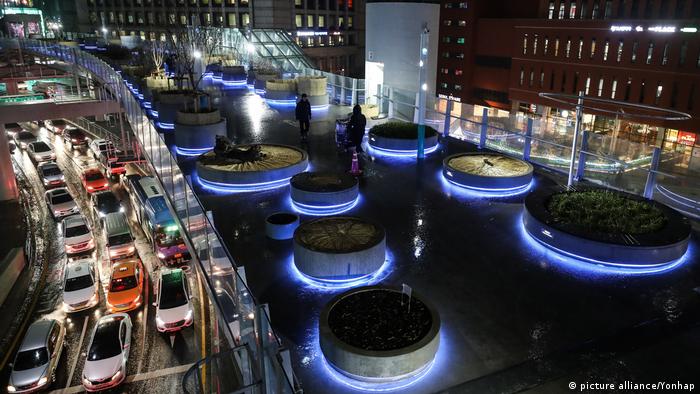HOUSEHOLDS have been warned about potential blackouts this winter as energy costs soar.
Blackouts à could be introduced in case of an emergency due to a shortage of gas â but you should know what to switch off in case of potentialà power cuts .
It’s important to unplug appliances to prepare for a blackout The National Grid is warning of power cuts at peak times â potentially in the evenings when it’s dark outside.It said the number of people left without electricity would depend on how many gas power stations would be forced to shut down because there is not enough gas.
In order to prevent plannedà power cuts , households will beà paid to turn down their heating à and not use their washing machines at peak times to save the country as much energy as possible.
If theà power cuts do go ahead,à it will be the first time there has been controlled blackouts since the 1970s.Ã
Some appliances should be unplugged ahead of a blackout .
It’s because when the power comes back, the surge of electricity may cause the circuit to fry and the appliance can be damaged.
The list of appliances to be wary of include:
- Iron
- Hair straighteners
- Oven
- Electric hob
There are also sensitive appliances to keep unplugged â these could surge and become damaged when the power returns:
- TV
- Computer
- Laptop
- Satellite box
- Smart phone
There are 15 power networks in the UK, and if there is a looming shortage, the National Grid will notify households if they will be cut off temporarily.
How do you prepare for a power cut?
Before a power cut, there are a few things you can do to make sure you are equipped to deal with the dark times.
You should make sure you have at least one torch in your house and spare batteries.
Try to avoid candles if you can because they are a fire risk.
External battery packs are also handy for charging your phone without relying on electricity.
You can pick up a portable phone charger for ã19.99 fromà Argosà â just remember that if you order online, you may have to pay a delivery fee.
You could also pick up a similar charger for ã16.99 fromà Amazon .
But make sure you shop around, because you may be able to find a better deal elsewhere.
Make sure the gadget is fully charged so that it is ready to use straight away.
This also goes for devices such as laptops and tablets .
It’s a good idea to write down and keep a list of important contacts just in case your mobile phone dies.
Having some blankets and thick clothes ready to keep everybody in your household warm is also a good idea.
Have a first aid kit handy too in case of an emergency.
How long can my fridge freezer survive in a power cut?
If you are without power for any length of time you will want to keep an eye on your fridge freezer.
Many of us rely on a freezer to stock up on food and keep grocery bills low.
Your fridge will keep food safe for up to four hours during a power outage, according to theà Food Standards Agency à (FSA).
Keep the door closed as much as possible to give your food the best chance of lasting.
Discard refrigerated perishable food such as meat, poultry, fish, eggs, and leftovers after four hours without power.
After a power outage,à neverà taste food to determine its safety.Ã
The FSA says a full freezer will hold a safe temperature for approximately 48 hours or 24 hours if it is half full and the door remains closed.
Food may be safely refrozen if it still contains ice crystals, or is at 4C or below, however, its quality may suffer.
Of course, most households will also have foods that don’t need to be cooked or stored in a fridge freezer that will remain safe to eat.
Other tips
People are being encouraged to sign up with their electricity supplier for a scheme which will give them money back on their bills.
To get the money back, customers will be expected to shift their use of power away from times of high demand to help prevent blackouts .
That could mean putting on the dishwasher or washing machine overnight or charging an electric vehicle at off-peak times.
The “demand flexibility service”; will run from November to March, and it is being introduced to help prevent blackouts.
So far there are two major suppliers providing customers with the scheme.
OVO Energy has announced a trial where customers can save up to ã100 on their bills by switching their usage to less busy times of the day.
And Octopus Energy has also said customers will be ã100 better off by using its “Saving Sessions”; flexibility service.
Other energy suppliers have not yet announced how they will run the scheme.
But you’ll need to be on a smart meter no matter which supplier you’re with to take advantage of it.
And most people currently pay the same amount for energy throughout the day and night, unless they are on anà Economy 7 or 10 tariff .
These give you cheaper rates during the night and more expensive ones in the daytime â so the scheme will have varied results depending on which tariff you’re on.
It’s expected that households will receive a text, email or letter explaining that if they use less energy during peak hours on set days, they could be paid up to ã10 a day if they choose to opt in.
But remember â there are a few risks and pieces of safety advice to take note of if you’re going to run some appliances overnight.
These include:
- Close all doors as this can help to prevent fire and smoke from spreading.
- Switch off and unplug electrical items such as TVs.
- Avoid charging devices like mobile phones when you sleep.
- Make sure any candles are out before you go to bed.
- Check your cooker and heaters are turned off.
We covered a full list of appliances you could be paid to use at night â read up on it here.
You can also check when to expect blackouts â including an exact time of day.




